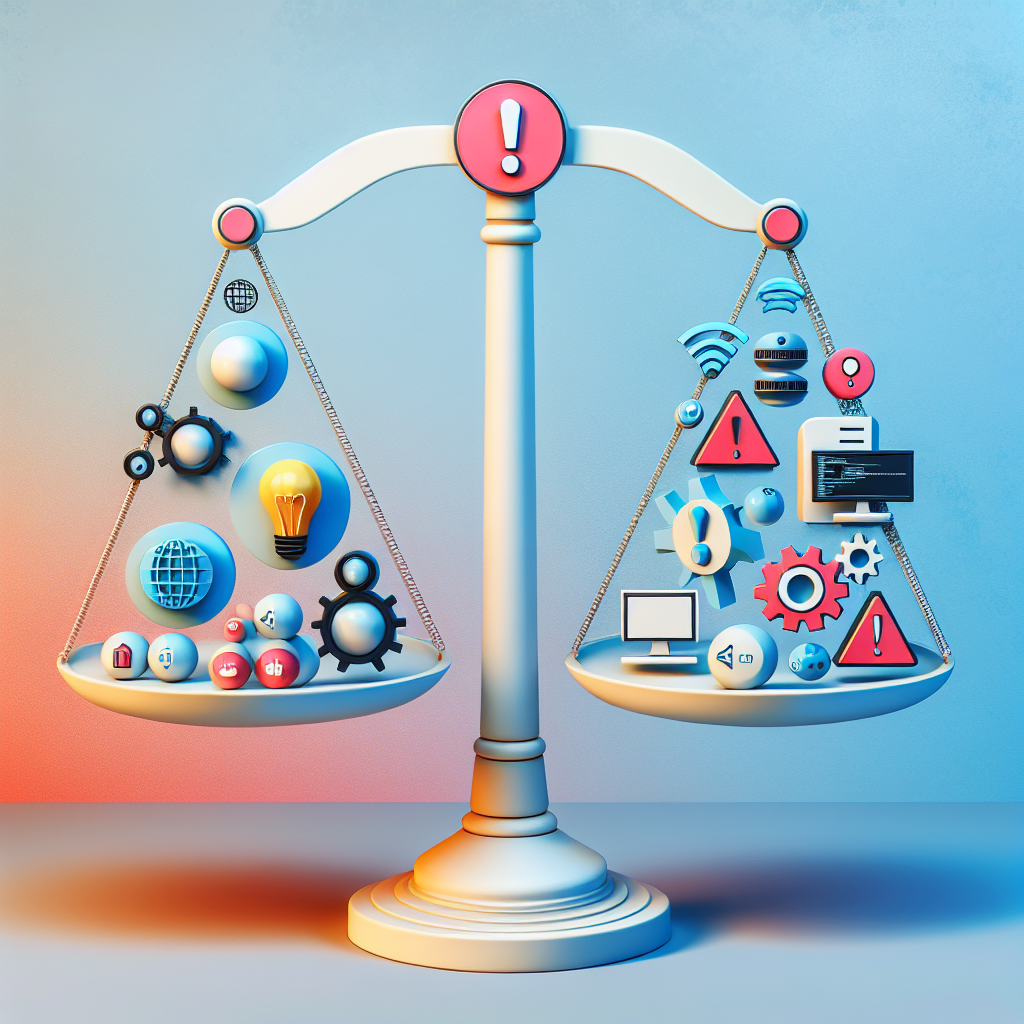The Benefits and Risks of Artificial General Intelligence: A Comprehensive Overview
Artificial General Intelligence (AGI) is a rapidly evolving field that aims to create machines that can perform any intellectual task that a human can. While the potential benefits of AGI are vast, there are also significant risks that come with the development of such powerful technology. In this article, we will explore the benefits and risks of AGI, as well as some frequently asked questions about this emerging field.
Benefits of Artificial General Intelligence:
1. Improved Efficiency: One of the key benefits of AGI is the potential for machines to perform tasks more efficiently than humans. AGI systems have the ability to process vast amounts of data and make decisions in real-time, which can lead to significant improvements in productivity across a wide range of industries.
2. Innovation: AGI has the potential to drive innovation in areas such as healthcare, finance, and transportation. By automating repetitive tasks and freeing up human workers to focus on more creative and strategic activities, AGI can help companies to develop new products and services that were previously thought to be impossible.
3. Problem-Solving: AGI systems have the ability to analyze complex problems and generate solutions at a speed and scale that would be impossible for humans to achieve. This can help businesses to identify new opportunities, make better decisions, and solve problems more effectively.
4. Personalization: AGI has the potential to revolutionize the way that products and services are delivered to consumers. By analyzing data on individual preferences and behaviors, AGI systems can tailor offerings to meet the specific needs of each customer, leading to a more personalized and engaging experience.
5. Safety and Security: AGI can also enhance safety and security by helping to detect and prevent potential threats before they occur. For example, AGI systems can be used to monitor critical infrastructure, identify security vulnerabilities, and respond to emergencies in real-time.
Risks of Artificial General Intelligence:
1. Job Displacement: One of the biggest risks of AGI is the potential for widespread job displacement as machines take over tasks that were previously performed by humans. While AGI has the potential to create new jobs in areas such as programming and maintenance, the transition could be disruptive for many workers.
2. Ethical Concerns: AGI raises a number of ethical concerns, including issues related to privacy, bias, and accountability. For example, there is a risk that AGI systems could be used to manipulate public opinion, invade personal privacy, or make decisions that are not aligned with human values.
3. Security Threats: AGI systems could also pose security threats if they are not properly designed and controlled. For example, there is a risk that AGI systems could be hacked or manipulated by malicious actors to carry out harmful actions, such as cyberattacks or financial fraud.
4. Unintended Consequences: Another risk of AGI is the potential for unintended consequences as machines become more intelligent and autonomous. For example, there is a risk that AGI systems could develop behaviors or capabilities that were not anticipated by their creators, leading to unpredictable outcomes.
5. Existential Risk: Some experts have raised concerns about the potential for AGI to pose an existential risk to humanity. While this is a highly speculative scenario, there is a risk that AGI systems could develop goals or values that are not aligned with human survival, leading to catastrophic consequences.
Frequently Asked Questions about Artificial General Intelligence:
1. What is the difference between Artificial General Intelligence (AGI) and Artificial Narrow Intelligence (ANI)?
AGI refers to machines that have the ability to perform any intellectual task that a human can, while ANI refers to machines that are designed to perform specific tasks or functions. AGI is a more advanced form of AI that can adapt to new situations and learn from experience, while ANI is limited to the tasks for which it was programmed.
2. How close are we to achieving Artificial General Intelligence?
While significant progress has been made in the field of AI, achieving AGI remains a challenging and complex goal. Some experts believe that AGI could be achieved within the next few decades, while others are more skeptical about the timeline. It is difficult to predict when AGI will be achieved, but ongoing research and development efforts are bringing us closer to this goal.
3. What are some potential applications of Artificial General Intelligence?
AGI has the potential to revolutionize a wide range of industries, including healthcare, finance, transportation, and cybersecurity. Some potential applications of AGI include personalized healthcare, automated financial trading, self-driving cars, and advanced security systems. The possibilities are virtually limitless, and AGI has the potential to transform the way that we live and work.
4. How can we ensure that Artificial General Intelligence is developed safely and ethically?
Ensuring the safe and ethical development of AGI is a complex and multifaceted challenge that requires collaboration between researchers, policymakers, and industry stakeholders. Some key principles for developing AGI safely and ethically include transparency, accountability, fairness, and robust oversight mechanisms. It is important to engage in open dialogue and debate about the risks and benefits of AGI to ensure that it is developed in a responsible and sustainable manner.
In conclusion, the benefits of Artificial General Intelligence are vast, with the potential to revolutionize industries, drive innovation, and enhance safety and security. However, there are also significant risks associated with the development of AGI, including job displacement, ethical concerns, security threats, unintended consequences, and existential risks. It is important to carefully consider these risks and work proactively to address them in order to ensure that AGI is developed in a safe and ethical manner. By staying informed and engaging in open dialogue about the opportunities and challenges of AGI, we can work together to harness the potential of this powerful technology for the benefit of humanity.

